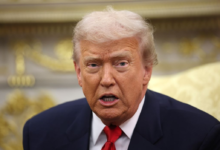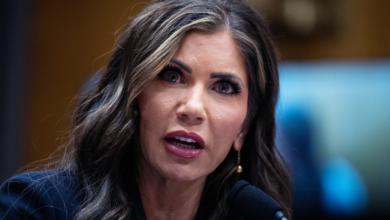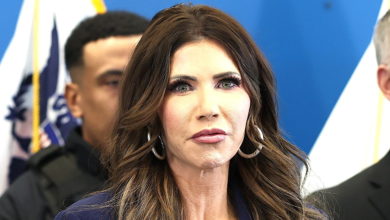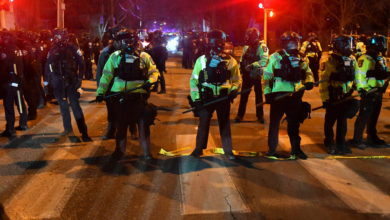Kash Patel Faces Congressional Hearings After Missteps In Kirk Assassination Probe And Turmoil At FBI
Patel now approaches congressional oversight hearings this coming week facing not just questions about that investigation but broader doubts about whether he can stabilize the FBI.
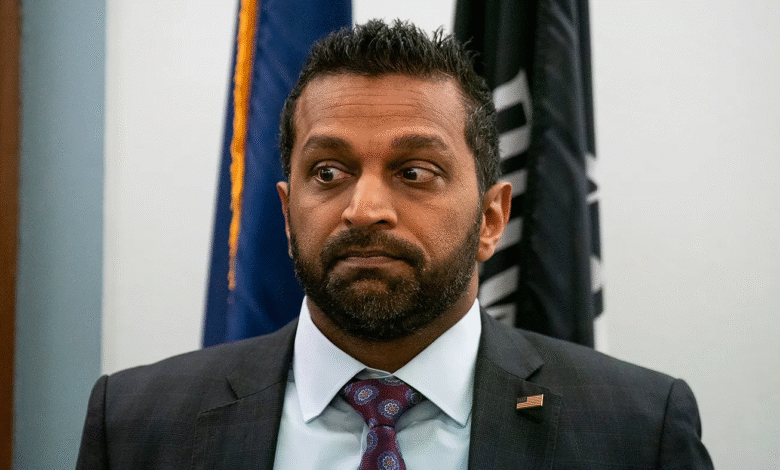
WASHINGTON (AP) — Hours after the killing of conservative activist Charlie Kirk, FBI Director Kash Patel announced online that the killer was in custody. The shooter was not. The two men in custody were quickly released, and Utah authorities acknowledged that the shooter remains at large.
This false claim was more than a slip of the tongue. It highlighted the serious uncertainties surrounding Patel’s leadership of the FBI at a time when his credibility—and his own—is under severe strain.
Patel now faces congressional oversight hearings this week, not only on questions about this investigation, but also on broader doubts about his ability to stabilize a federal law enforcement agency fragmented by political infighting and internal unrest.
Democrats are poised to challenge Patel over the purge of senior officials that led to prosecutions, his pursuit of grievances against President Donald Trump long after the Russia investigation was closed, and his reorganization of resources to prioritize combating illegal immigration and urban crime, despite the agency’s decades of work on complex threats like counterintelligence and public corruption.

Added to this are questions about the handling of Jeffrey Epstein’s sex trafficking cases, the addition of a deputy assistant director to work alongside Dan Bongino, and the use of polygraph tests on some agents in recent months to identify leakers. In the meantime, Republicans are likely to come to his defense or shine a spotlight on FBI critics.
These hearings will provide Patel with his most important platform yet and perhaps the clearest test of his ability to convince the country that the FBI, under his leadership, can avoid repeating its mistakes during this time of political violence and growing mistrust.
“Given the skepticism that has existed and continues to exist among some members of the Senate, it is extremely important that he performs well in these oversight hearings” on Tuesday and Wednesday, said Gregory Brewer, a former FBI official and former senior congressional affairs aide.
The FBI declined to comment on Patel’s impending testimony before the committee.
He claimed the subject was ‘in custody’
Kirk’s murder warranted a thorough investigation, not only because it was the latest wave of political violence in the United States, but also because of Kirk’s close friendships with Trump, Patel, and other senior administration figures and allies.
As Salt Lake City officials investigated, Patel’s social media account posted that “the person of interest in today’s horrific shooting that claimed the life of Charlie Kirk is now in custody.” Utah Governor Spencer Cox said at a press conference around the same time, “Whoever did this, we will find them,” indicating that authorities were still searching for him. Shortly after, Patel announced the detainee’s release.
“This doesn’t send the message we want to send to the public,” said Chris O’Leary, a former FBI counterterrorism officer. “It’s had the opposite effect. People are starting to wonder what’s going on. It’s like Keystone Cops, and things are escalating.”
The next day, a scheduled afternoon press conference was canceled due to the “rapidly evolving” situation, as Patel and Bongino traveled to Utah. The conference was postponed until the evening. Patel attended but did not speak.
As the search dragged on for more than a day, Patel sharply criticized FBI agents on Thursday for what he considered a lack of information, including the failure to promptly provide him with a photo of the suspect. This was according to two people familiar with the case, who were not authorized to speak by name and spoke to The Associated Press on condition of anonymity. Details of the call were previously reported by The New York Times.

Patel’s public reaction did not go unnoticed in conservative circles. Prominent strategist Christopher Rufo wrote on the X website: “It’s time for Republicans to evaluate whether Kash Patel is the right man to lead the FBI.”
Then there’s the personnel purge
On the very day of Kirk’s assassination, Patel was facing another problem: a lawsuit filed by three senior FBI officials fired in an August purge that wiped out decades of institutional experience and which they described as a campaign of revenge against the Trump administration.
Among them was Brian Driscoll, who, as acting FBI director in the early days of the Trump administration, resisted Justice Department requests to release the names of agents who investigated the January 6, 2021, Capitol riot. Driscoll claimed in his complaint that he was fired following a dispute with Patel over the administration’s demands to fire an FBI pilot, misidentified on social media as the agent in charge of investigating Trump’s classified documents.

The complaint alleges that Patel told Driscoll that his position depended on the termination of the individuals the White House wanted to fire. The FBI declined to comment on the complaint.
The other plaintiffs are Spencer Evans, a former high-ranking agent in Las Vegas, whose termination letter cited “unreasonableness and overzealousness” in implementing COVID-19 policies while working as a human resources manager—an allegation his lawyers deny—and Steve Jensen, who helped oversee the FBI’s investigation into the January 6 Capitol riot.
This unrest continues a pattern that began even before Patel took office, when more than half a dozen top FBI leaders were forced to resign, with the Justice Department arguing they could not be trusted to implement Trump’s agenda.
Since then, the FBI’s 55 field offices have undergone significant leadership changes. Some have left through promotions and retirements, while others have been forced to accept new assignments or resign. The head of the Salt Lake City office, a veteran counterterrorism investigator, was dismissed just weeks before Kirk’s murder at a Utah university, according to sources familiar with the matter.
In July, Michael Feinberg, an agent based in Norfolk, Virginia, wrote a personal statement explaining that he had been advised to prepare for a demotion and a lie detector test because of his friendship with Peter Strzok, a key FBI agent investigating ties between Russia and the Trump campaign in 2016, who was fired following derogatory text messages sent about him. Feinberg ultimately resigned.

FBI’s priorities shift under Patel
Patel came to the FBI after sharply criticizing its leadership, particularly the Trump investigations, which he said politicized the institution. Under Patel and Attorney General Pam Bondi, the FBI and Justice Department were deeply immersed in their own politically charged investigations, such as the one into New York Attorney General Letitia James.
He quickly restructured the bureau, while the FBI and Justice Department investigated one of the Republican president’s most high-profile grievances: the years-long probe into Trump’s ties to Russia. Trump called the probe, which failed to uncover any criminal conspiracy between Russia and his campaign, a “hoax” and a “witch hunt.”
In an unusual statement, the Justice Department appeared to confirm that it was investigating former FBI Director James Comey and former CIA Director John Brennan, two key players in the Russia saga, whom Patel describes in his book as “members of the executive branch deep state,” without revealing their motives. Bondi ordered the evidence presented to a grand jury, and agents and prosecutors began requesting information and interviews from former officials linked to the investigation, according to several people familiar with the communications.
Critics of the new Russia investigation see it as a transparent attempt to turn the page on criticism leveled at the FBI and the Justice Department by some members of Trump’s constituency after they announced in July that they would not release any additional documents from the Epstein investigation.
Furthermore, Patel has made combating urban crime, drug trafficking, and illegal immigration a top priority for the FBI, in line with Trump’s.
The FBI played a key role in the federal government’s takeover of the Washington, D.C., Police Department, where it partnered with partner agencies to make arrests for offenses such as drunk driving, which have historically not been an FBI priority.
The FBI makes no apologies for the aggressiveness of law enforcement in American cities that the Trump administration accuses of being riddled with crime. Patel and Bongino touted the number of arrests involving federal law enforcement as part of an initiative they dubbed “Operation Summer Heat.” Patel called the thousands of cumulative arrests, many of them immigration-related, “what happens when you let good police officers do their jobs.”
But some worry that focusing on street crime will distract from the complex issues of public corruption and threats to national security, which the FBI has long been primarily, if not exclusively, responsible for investigating. For example, a federal anti-corruption task force in Washington, D.C., was disbanded last spring.
“One of the biggest problems I’m seeing is that the investigative programs that are most challenged this year are the ones the FBI does alone, or that it excels at above all others,” said Matt DeSarno, who retired in 2022 after leading the Dallas field office.



